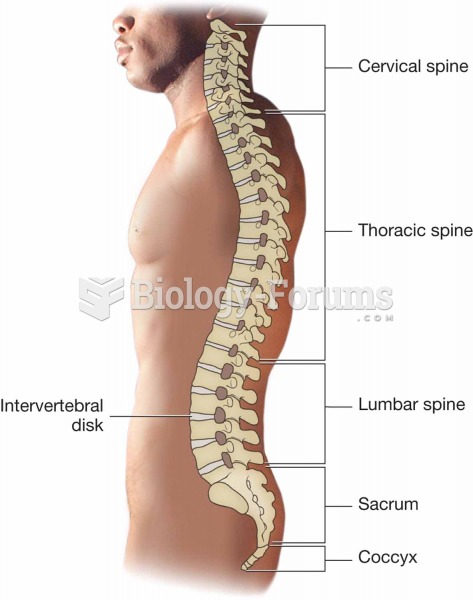|
|
|
It is believed that the Incas used anesthesia. Evidence supports the theory that shamans chewed cocoa leaves and drilled holes into the heads of patients (letting evil spirits escape), spitting into the wounds they made. The mixture of cocaine, saliva, and resin numbed the site enough to allow hours of drilling.
Lower drug doses for elderly patients should be used first, with titrations of the dose as tolerated to prevent unwanted drug-related pharmacodynamic effects.
Essential fatty acids have been shown to be effective against ulcers, asthma, dental cavities, and skin disorders such as acne.
The B-complex vitamins and vitamin C are not stored in the body and must be replaced each day.
The calories found in one piece of cherry cheesecake could light a 60-watt light bulb for 1.5 hours.
 “Mission Accomplished” proclaimed the banner on the USS Abraham Lincoln, where on May 1, 2003, Presi
“Mission Accomplished” proclaimed the banner on the USS Abraham Lincoln, where on May 1, 2003, Presi
 With all vacuum lines and the intake tube removed, the valve cover can be removed after removing all ...
With all vacuum lines and the intake tube removed, the valve cover can be removed after removing all ...
 Place one hand on the medial and one on the lateral thigh to begin horizontal stroking. Slide hands ...
Place one hand on the medial and one on the lateral thigh to begin horizontal stroking. Slide hands ...




